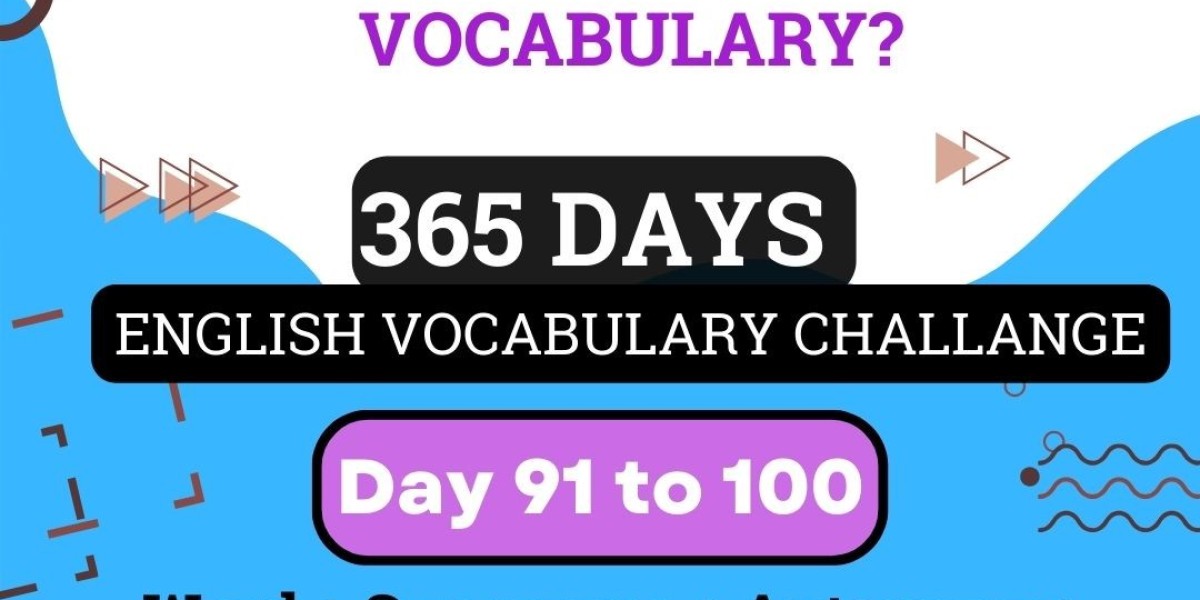Learning English becomes a lot easier when you start with the most common vocabulary words. Whether you're a beginner or someone brushing up on skills, these words are used daily in conversations, writing, and reading. In this guide, we’ll walk through essential English vocabulary words with examples, tips, and categories to make learning fun and simple.
Why Vocabulary is Important
You can’t build sentences without words. Vocabulary is like the building blocks of communication. The more words you know, the more clearly you can express yourself. Think of it like this—if grammar is the skeleton, vocabulary is the flesh and heart of the language.
Basic Categories of Common English Vocabulary
1. Daily Use Vocabulary
These are the words we use all the time in everyday conversations.
Hello – A greeting
Goodbye – A way to say you're leaving
Please – A polite word to ask for something
Thank you – To show appreciation
Sorry – To apologize
Yes/No – Basic agreement or disagreement
2. Household Vocabulary
Useful for talking about things around your home.
Chair
Table
Bed
Fan
Window
Door
3. Time and Date Vocabulary
Words related to time help in planning and scheduling.
Today
Tomorrow
Yesterday
Morning
Evening
Week
Month
Year
4. Weather Vocabulary
Talking about the weather is common in daily small talk.
Sunny
Rainy
Windy
Cloudy
Hot
Cold
5. Emotion Vocabulary
These words help you express how you feel.
Happy
Sad
Angry
Excited
Scared
Tired
6. Common Verbs
Verbs are action words and are crucial in sentence-making.
Go
Come
Eat
Drink
Talk
Sleep
Run
Walk
7. People and Relationships Vocabulary
Father
Mother
Brother
Sister
Friend
Teacher
Student
8. Colors Vocabulary
Red
Blue
Green
Yellow
Black
White
Top 20 Common English Vocabulary Words With Examples
| Word | Meaning | Example Sentence |
|---|---|---|
| Book | A set of written pages | I read a book last night. |
| Car | A vehicle | My car is parked outside. |
| Water | A clear liquid | Drink water every day. |
| Eat | To consume food | I eat dinner at 8 PM. |
| Work | To do a job | I work in a software company. |
| Friend | A person you like | My best friend is always supportive. |
| Love | A strong feeling | I love chocolate. |
| Big | Large in size | That house is really big. |
| Small | Little in size | The puppy is small and cute. |
| Run | To move fast | I run every morning. |
| House | A place to live | They bought a new house. |
| Door | Entry or exit | Please close the door. |
| Happy | Feeling joy | She looked very happy. |
| Sad | Feeling sorrow | He felt sad after the movie. |
| Hot | High temperature | It’s hot in summer. |
| Cold | Low temperature | Winter mornings are cold. |
| Fast | Quick in speed | That car is fast. |
| Slow | Not fast | The traffic was slow today. |
| Smile | Expression of happiness | She has a beautiful smile. |
| Help | To assist someone | Can you help me, please? |
Tips to Learn Vocabulary Faster
Use flashcards – Simple and effective.
Practice daily – Learn 5–10 new words every day.
Make sentences – Use each word in your own sentence.
Watch English shows – Pick up natural usage.
Play word games – Scrabble, crosswords, etc.
Conclusion
Building a strong vocabulary is the first step to mastering English. These common English vocabulary words are your tools for better communication. Start small, be consistent, and make it part of your daily life. Whether you're speaking, reading, or writing, knowing the right words can make all the difference.
FAQs
1. How many English vocabulary words should I learn daily?
Start with 5 to 10 words per day to build a solid habit.
2. What’s the easiest way to memorize English words?
Use flashcards and repeat the words aloud daily. Use them in sentences too.
3. Are these words useful for English speaking exams?
Yes! These are foundational and often used in speaking and writing tests like IELTS or TOEFL.
4. Can I learn vocabulary through movies?
Absolutely. Watching English movies or shows helps in understanding usage and pronunciation.
5. How long does it take to build a strong vocabulary?
With daily effort, noticeable improvement can happen within 2–3 months.








